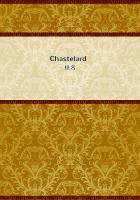In Java, the number of inhabitants increases more rapidly than in any other country in the world, owing to the excess of thebirths over the deaths, a very exceptional fact in the tropics. The population amounted in 1780 to 2,029,500 souls; in 1808to 3,730,000; in 1826 to 5,400,000; in 1863 to 13,649,680; and finally, in 1872, to 17,298,200. It is estimated as doublingitself in thirty years. In the United States this requires twenty-five years, but immigration there contributes a considerablecontingent. The effect of this increase of population is to reduce the share of each cultivator in the periodic partition oflands. M. W. Bergsma recently drew an alarming picture of the situation in this respect. (12) In certain regions, he tells us, thepeasant only obtains the third or fourth part of a bouw , or from 1? to 2?roods. The cultivators say they have no more thanthe half or quarter of the sawahs , which their fathers tilled. They even ask that the government should forbid subdivision intoparcels smaller than a half bouw .
The principal merit attributed to the periodic partition is that it prevents a proletariat. Whereas, M. Bergsma asserts, thesystem will soon result in converting all the Javanese into a people of proletarians. There will still be equality; but it will beequality in misery. Dutch conservatives, and even moderate liberals, such as M. Thorbecke, have always defended thesystem of collective possession, as did conservatives of the shade of M. de Haxthausen in Russia. They are opposed to theintroduction of private ownership, borrowed from the West. The reformers, on the contrary, maintain that they should atonce put into force in Java the laws which regulate landed property in Europe, because the economic advantage thereof willbe the same there as here.
In Java, as in Russia, this collective system is favourable to colonization. Several families leave their native village to founda new community. For this purpose, they construct a system of irrigation by means of labour carried on in common. Thewater having been brought by the co-operation of all, it follows that the sawahs , or rice-fields, so fertilized, become theundivided property of the communal group. It is a kind of partnership. To encourage individual clearances, enjoyment forlife or for a long term, thirty or forty years for instance, as in the case of a railway concession, must be guaranteed.
In India the primitive community of Java and Russia no longer exists, except in the most retired and least known parts ofthe country. According to Sir Henry Maine, one of the causes which has made collective ownership of the soil disappearhere, is that pasturage plays a less important part in the rural economy than in Europe, and that the use of meat as an articleof food is almost entirely excluded. The Slavonic and Germanic races maintained numerous herds on large undividedpastures: and this common tenure, which has survived in many countries to our own times, even after the arable land hasbecome private property, formed the basis of village communities. In India, where there were fewer herds and less pasture,undivided co-operative cultivation had less ground of existence.
Nearchus, however, the lieutenant of Alexander, writing in the fourth century before Christ, tells us that in certain countriesof India the lands were cultivated in common by the tribes, who, at the end of the year, divided the crops and produceamong their members. (13) We see in Elphinstone that these communities survived till a period very near to our own, (14) andthey exist even now in some remote parts of the country.
Although the periodic partition of lands has generally gone out of use, most of the other characteristics of the ancientinstitution have been preserved. I have no hesitation, says Sir H. Maine, in asserting that, in spite of certain differences, themode of occupation and cultivation among peasants, grouped together in village communities, is the same in India as inprimitive Europe. The English did not at first notice or understand these communities. Although the laws of Manu mentionthem, the Brahminic code of the Hindoos, which the English jurists first examined, was not sufficient to throw light oninstitutions and customs so different from those of modern Europe. It is only quite recently that they have appreciated theimportance of this ancient organization, even for present purposes of administration.
In its relations with the state, the village is regarded as a jointly responsible corporation. The state looks to this corporationfor the assessment and levying of imposts, and not to the individual contributor. Sir George Campbell relates that there arevillages in the presidency of Madras, which have for half a century apparently submitted to the system of individual taxation,but which really pay the impost in a lump, and afterwards allot the payment according to their special mode of division. (15) The village owns the forest and uncultivated land, as undivided property, in which all the inhabitants have a right ofenjoyment. As a rule, the arable land is no longer common property, as in Java or in Germany in the days of Tacitus. Thelots belong to the families (16) in private ownership, but they have to be cultivated according to certain traditional rules whichare binding on all.
In some remote regions the most archaic form of community is to be found, of which ancient authors make such frequentmention. The land is cultivated in common, and the produce divided among all the inhabitants. At the present time, however,collectivity no longer exists generally, except in the joint-family. This family community still exists almost everywhere, withthe same features as the zadruga of the Southern Slavs, which we shall describe at length presently.















